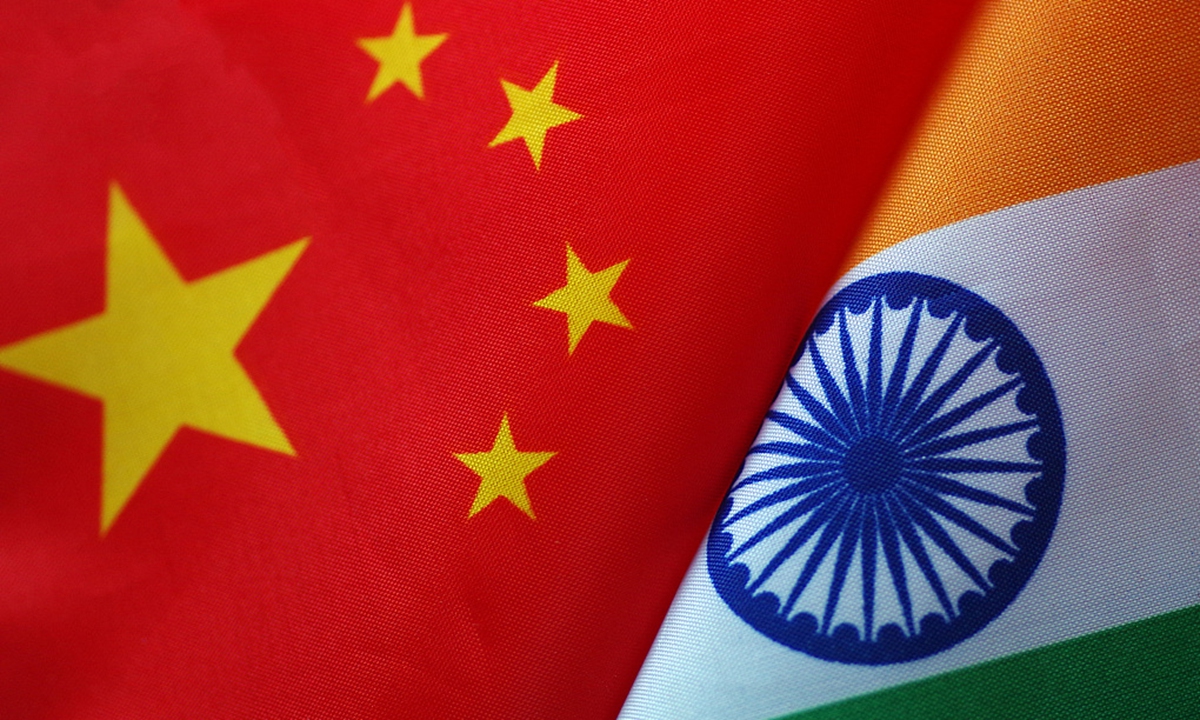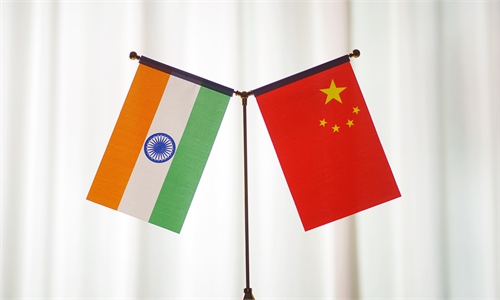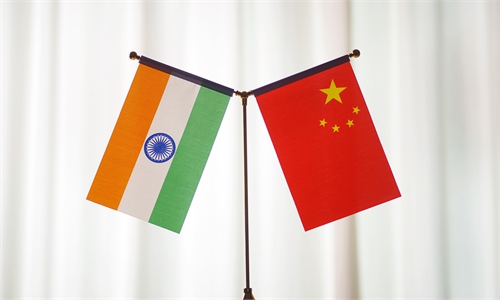Has India suffered a loss when border with China goes further toward stability? Global Times editorial

China India. Photo: VCG
Chinese State Councilor and Foreign Minister Wang Yi and Indian External Affairs Minister Subrahmanyam Jaishankar both attended the BRICS foreign ministers' meeting on the sidelines of the UN General Assembly in New York on Thursday, but did not hold one-on-one talks. There have been no bilateral meetings between China and India on several recent multilateral occasions. Although the relationship between the two countries has not truly returned to normal and is not out of the "difficult stage," some positive trends have emerged. An important development is that Chinese and Indian troops began disengaging in the area of Jianan Daban on September 8 after several rounds of military negotiations, which is another step in the general direction of border stability.
In another activity on Wednesday, Jaishankar said, "It's important for our [India's] relationship with China to come back to normal. So I think that's where our focus is." He also mentioned that it is in the mutual interests of India and China to find a way to accommodate each other, because of the whole idea of the rise of Asia is contingent on the biggest economies on the continent getting along with each other. This is consistent with China's position, making it possible for the two countries to further improve relations. When meeting New Indian Ambassador to China Pradeep Kumar Rawat in June, Wang said the common interests between China and India far outweigh their differences, and the two sides should bear in mind the overall interests of bilateral relations, help each other succeed instead of engaging in attrition, strengthen cooperation instead of being on guard against each other, and enhance trust instead of being suspicious of each other.
But just when China-India ties achieved some detente, India's domestic hardline voices against China have been on the rise again. Some ultra-nationalists believe that "India suffered a loss" on the issue of border disengagement, and some accused the Modi government of "giving 1,000 sq km of territory to China." They exaggerated the so-called "overall threat" of China to India and put pressure on the government to oppose reconciliation with China. They won't say whether they will "suffer a loss" from continued confrontation with China, or from peaceful coexistence and enhanced cooperation with China.
It needs to be recognized that this is a complex reality that China-India relations cannot avoid and must face. On the one hand, there has always been a dichotomy within India toward China. Whenever relations between the two countries go wrong, radical forces gain the upper hand, and on the other, there have always been evil forces that do not want to see China and India get close. We cannot clean them up like garbage with a broom. China-India relations need to achieve healthy and stable development while overcoming and transcending these internal and external disturbances. China's attitude is clear and firm, but New Delhi has paid a heavy cost in the past from pandering to and exploiting domestic nationalist sentiments. This is a strategic liability for New Delhi, and only by shaking it off can New Delhi advance further.
Today, there are still some people in India who have unrealistic fantasies about the border issue, and they often talk about going back to the "status quo of April 2020." In this regard, China has made it clear that the so-called status quo of April 2020 was made by India's illegal crossing of the border between China and India, and China cannot accept it. The Chinese side has also made it clear many times that the rights and wrongs of the China-India border conflict are very clear, and the responsibility does not lie on the Chinese side. However, due to some Indian media distorting the facts and inciting domestic nationalist sentiments, this has caused disturbances in China-India relations to a certain extent, and political efforts to promote the "ice-breaking" of relations with China often have to take public opinion into consideration or even take risks.
In addition, there are some people in India who are tempted by external forces such as the US. They hope that the border issue will keep China-India relations tense and play a role in containing China. At present, China and India have gradually cooled the border situation through consultation and negotiation, which makes these people feel "anxious" and hope that by creating pressure through public opinion, they will hinder the relevant actions of the Indian government and affect the further settlement of the border issue. Under such circumstances, the Indian government should take a firmer confidence, not be disturbed by noise, and recognize that maintaining border peace and tranquility is in India's real interests.
China-India relations fell to a low point after the Galwan Valley conflict in 2020. Since then, the two sides have maintained unimpeded diplomatic and military channels. The border situation has been generally stable, and the relationship between the two countries has shown a recovery momentum. It is worth mentioning that this happened at a time when the US has been constantly driving a wedge between China and India. It indicates that the two major powers cannot be easily fooled. We also have confidence in New Delhi's political wisdom and strategic sobriety, and believe that China and India will find a way of coexistence and accommodating divergent views.


